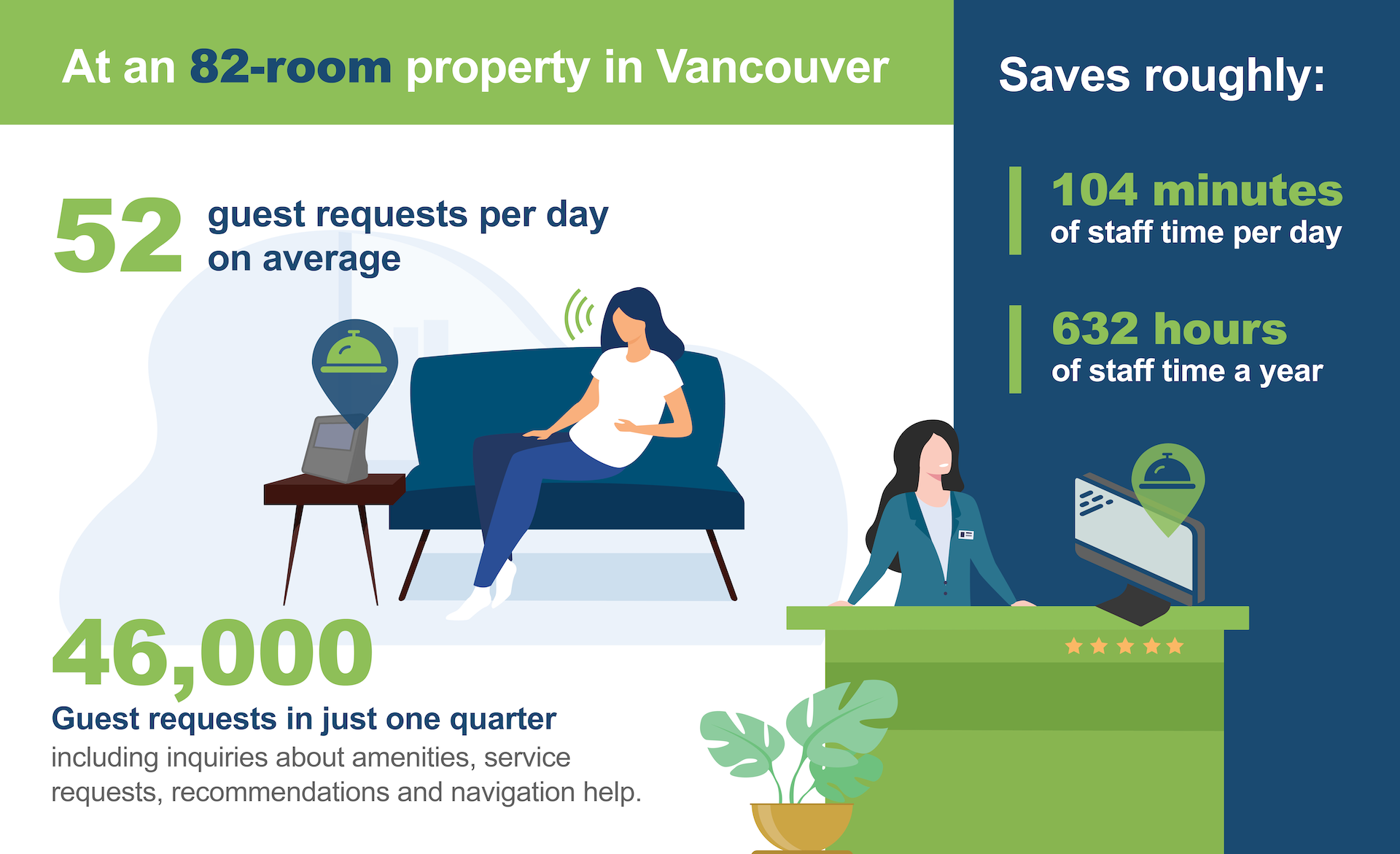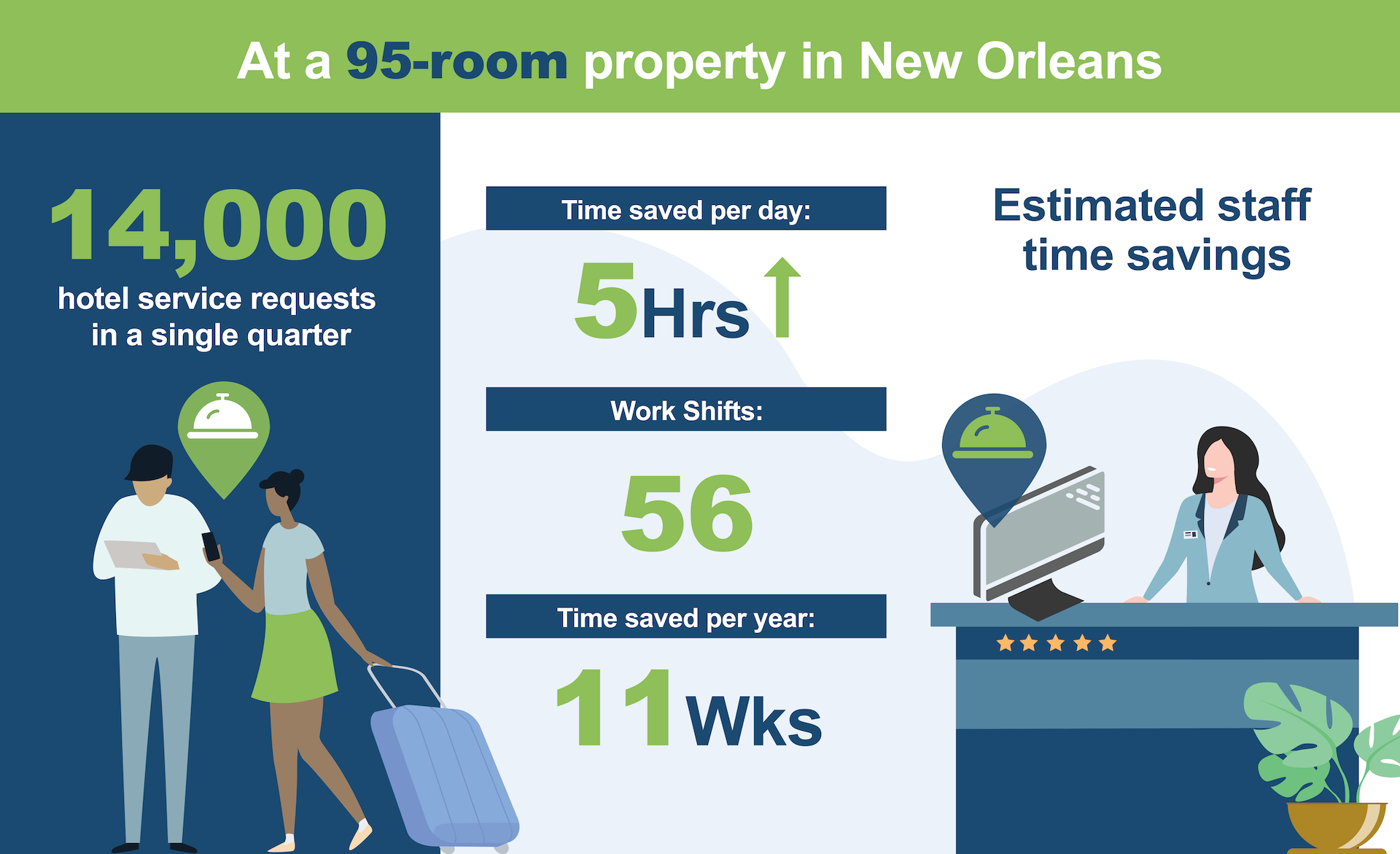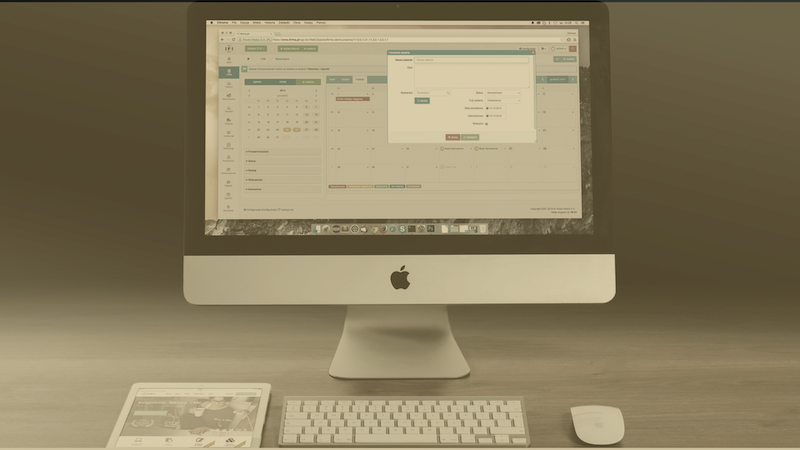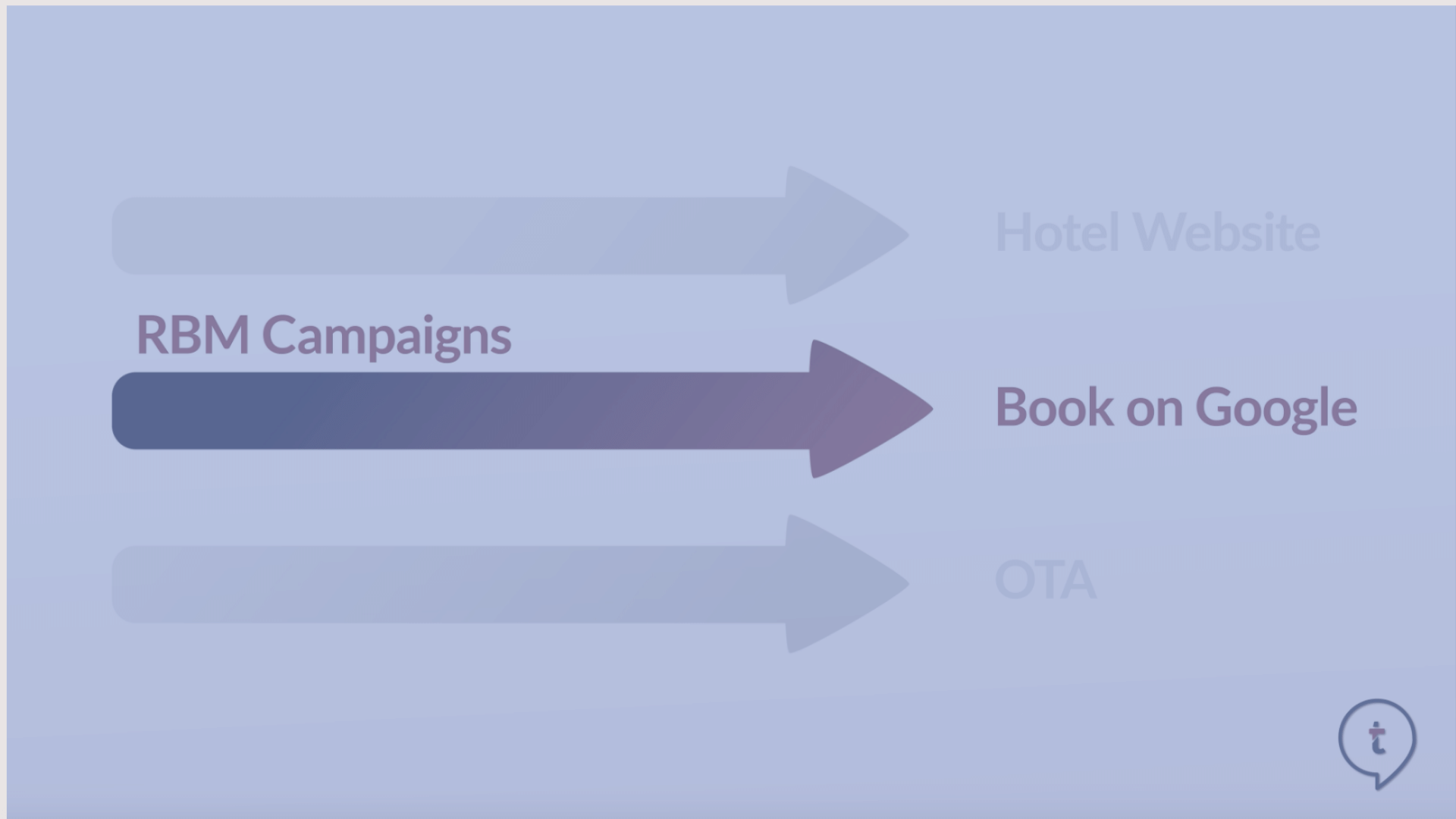The Value of Voice: How Voice-Assisted Tech Can Deliver Exceptional Guest Experience & Business Value
There’s a well-known marketing strategy called Voice of the Customer (VoC) in which companies gather insight into what customers want in order to better serve their needs and expectations. Typically, it involves investing heavily in conducting surveys, focus groups or interviewing customers to gather their feedback.
But what if you could gather that insight easily and naturally, simply by offering a service that guests already use? And wouldn’t it be great if, instead of costing you a tremendous amount of time and money, it actually saved both?
Voice-controlled technologies have become commonplace in everyday life. One-third of Americans now own a smart speaker, and the market is growing exponentially. Seven out of 10 smart speaker owners say they use it at least daily, and they rely on it to check the weather, add to their shopping lists, listen to music, order takeout, etc.
With this fast-growing adoption, it’s no wonder that voice tech is also becoming a key piece of the hospitality tech stack. According to the 2023 Lodging Technology Study, over half of the hotel operators already offer or plan to add voice-controlled devices to their guest rooms this year, and nearly 2/3 believe operators should seriously consider implementing this emerging technology.
Despite this trend data, many hoteliers I speak with still question the usefulness or ROI of deploying voice technology, especially lifestyle brands with minimal in-house services. But in fact, voice-enabled devices offer a wide range of benefits for every type of property across the entire guest journey, enhancing their experience and providing measurable business value to the hotel operator.
Familiar and convenient
Let’s start with the basics. One of the primary goals of any hotel operator is to make guests feel at home. With nearly 4 out of 5 people relying on voice devices already, it only makes sense that they would expect that same experience when they travel. The convenience of voice interaction has already become commonplace; consumers don’t even think twice about voice-prompted phone menus, talk-to-text capabilities or “Hey, Siri…”— it’s just a part of daily life. In fact, it seems most people are more comfortable talking to a device than picking up the phone and talking to another human.
With voice-activated devices in the room, guests can easily get the information and services they need without hassle, just like at home. The hands-free operation makes it simple to get a weather report, make dinner reservations, order takeout or summon a ride, all while they’re working or getting ready to head out.
Multilingual capabilities
Language barriers can be an obstacle to international travel, as people often fear being unable to navigate around unfamiliar places when they don’t speak the language. As a frequent international traveller, I also encounter many multinational staff at hotels, so even if you travel domestically, you might still have trouble communicating your needs, especially in large destination cities.
With international travel rebounding in a big way already, deploying multilingual voice-enabled technology can go a long way toward making guests feel more comfortable, safer and able to get the information and services they need. Instead of feeling reluctant to call the front desk to request extra towels or make a spa appointment, which might drive negative reviews, guests can simply speak their request—and get the appropriate response—in their native language for a more convenient and confident experience.
Accessibility support
In-room voice-enabled technology solves many accessibility challenges and gives guests more control over their comfort and overall experience. This convenient service can help to boost online ratings for guests looking for the most accessible properties and cultivate loyalty when guests know they will get the same smooth, convenient experience at every property within your brand family.
This accessibility support extends to other in-room technology like smart thermostats and lighting. For example, guests don’t need to worry about navigating the temperature controls; they can just say, “Set the temperature to 20 degrees Celsius,” or “Turn down the AC to 68 degrees Fahrenheit,” and it’s done. Or, if they want to adjust the lighting quickly, they can use voice commands to turn them off or on.
Cultivated experiences
More than ever, younger guests are looking for unique, experiential travel that takes them off the beaten path and immerses them in local culture. While the concierge has traditionally been the go-to source for advice in this area, again, we run into the fact that younger generations like Millennials and Gen Z would much rather avoid conversations and search for options independently.
Hotel operators can give guests this cultivated experience by providing customised guidance through voice-enabled technology. Properties can partner with local establishments to recommend them to guests through the in-room device by custom-programming the responses. That way, when a guest asks for the best local pizza, the voice assistant can suggest the family-owned shop down the street and even provide a special offer code, rewarding guests with a discount or other bonus if they mention it during their visit. Or, for properties with in-house dining, they could easily recommend the hotel’s events or happy hour options in the lobby bar. It makes the entire experience feel personalised and unique—perfect for #influencer culture.
Streamlined operations
How often have you been at the front desk checking in, only to have the attendant answer the phone multiple times? Or called to request clean towels and have to call back a second time because the message didn’t get sent to housekeeping?
Especially with the current workforce challenges, hotel operators need all the help they can get to reduce staff burden and ensure an efficient, attentive guest experience. But it’s difficult to do that with limited staff and most current processes. For example, a call to the front desk for extra towels typically requires the attendant to make another call to housekeeping—two calls that each take up precious little time. Not to mention, many brands have SOPs and SLAs that specify staff must answer the phone within two rings or less, and meeting that requirement is exceedingly difficult when you’re the only one operating the phone.
Adding voice-enabled in-room devices can help to automate those services, eliminate inefficiencies, save time and money, and provide guests with more timely service. Some solutions even interface directly with task management and housekeeping systems to automate the entire process.

At an 82-room property in Vancouver, in-room voice assistants handled nearly 52 requests per day on average and over 4,600 in just one quarter, including guest inquiries about amenities, service requests, recommendations and navigation help. Using a conservative estimate, if each of those calls had taken two minutes minimum, that saved 104 minutes of staff time per day and over 632 hours a year.
At another location in New Orleans, guests made nearly 14,000 hotel service requests in a single quarter for an estimated staff time savings of over 5 hours a day, totalling roughly 56 eight-hour shifts or 11 full work weeks.

Those savings are in addition to eliminating the distraction of the phone at the front desk, allowing associates to focus on the guest in front of them for a more engaging interaction. This creates a more personal touch for guests, rather than staring at the PC or reaching for the phone.
Customer insights
Gathering customer data and insights has become a top priority for hoteliers aiming to give customers a more personalised experience. Knowing more about your guests enables you to deliver the exclusive, “just-for-me” travel experience that delights and builds loyalty. Failure to deliver on that expectation creates missed opportunities and potentially lost business. There’s a famous example of “what not to do” when a guest of one well-known, luxury, Five-Star hotel brand ordered a $20,000 bottle of red wine at one location, but when he travelled to another property of the same brand, they didn’t even know who he was.
Voice assistants enable hoteliers to gather vital customer insights naturally and with virtually zero effort. Simply by analysing the requests customers make through the devices—data that can be connected to their guest profile through the Property Management System (PMS) or Customer Relationship Management (CRM) software—, hoteliers can gain a wealth of information to improve guest experiences. Whether it’s finding out that Mary often asks about the spa hours and offering her a special service on the house or figuring out that guests’ Number One question is, “Where is the vending machine?”—and you don’t have one—this voice-device search data provides rich insights into what customers want most. It’s an authentic Voice of the Customer strategy that marketers and operations staff can leverage.
New revenue
Delivering value in the guest experience is paramount as travellers demand more for their money in a tight economy. Of course, this strains hoteliers, who also have to manage expenses when everything from supplies to labour costs more.
Tapping into what customers want through voice-enabled smart speakers allows hotel operators to upsell services across a wide range of offers and generate new revenue. For example, hoteliers can use program voice assistants to offer a free appetiser in the on-site restaurant or complimentary dessert with a room service order, a free drink at the bar, an add-on facial with any spa service, or even a small discount on their next stay for using the device for in-room checkout, which saves front desk time and resources.
The future of voice integration
Hoteliers looking to add voice technology should know that they’re not limited to off-the-shelf consumer technology that attempts to cater to hospitality needs. In fact, there are hospitality-specific technologies on the market that provide a service-focused solution, tech stack integration and that put hoteliers in control of every response guests receive.
With in-room voice technology already seeing rapid adoption, it’s not difficult to see the potential for broader application and integration in the hospitality market. For example, voice-enabled kiosks in the lobby would bring much of this capability to high-traffic spaces, enabling automated check-in, baggage assistance requests, and even fulfilling basic concierge services. Integrating this capability with Passpoint Wi-Fi authentication technology would allow hotel operators to immediately recognise guests upon arrival through device authentication and build an exceedingly rich profile of their needs, activities, requests and behaviours by combining Wi-Fi usage data with voice requests.
By incorporating voice, data tracking and analysis, and personalisation into their technology stack, hoteliers can create an intimately curated experience that makes guests feel right at home while reducing staff burden and saving time and money.
About the Author
Hauke Lenthe, Managing Director APAC & EMEA at Nomadix

Hauke Lenthe is the Managing Director, EMEA & APAC of Nomadix, Inc., the leader in hotel internet services and guest technologies. He brings more than 25 years of hospitality and international hotel technology experience, spanning from managed internet services to operational PMS and guest-facing software.
Connect with Hauke on LinkedIn.
Nomadix is a Contributing Member of techtalk.travel.
- VIDEO | Voice Technology in the Hospitality Industry
- PODCAST| Voice Technology in the Hospitality Industry
- INFOGRAPHIC | Voice Technology
EXPLORE FURTHER. Related techtalk.travel editorials





![V03: The History of Hotel & Travel Technology | [Updated] Infographic](https://techtalk.travel/storage/app/uploads/public/63f/e6f/ec8/63fe6fec80447817849943.jpg)



Create an account to access the content.
Get access to Articles, Video's, Podcasts, Think Tanks, Infographics and more.
Click “Sign In” to accept our
Terms of Service Privacy Policy